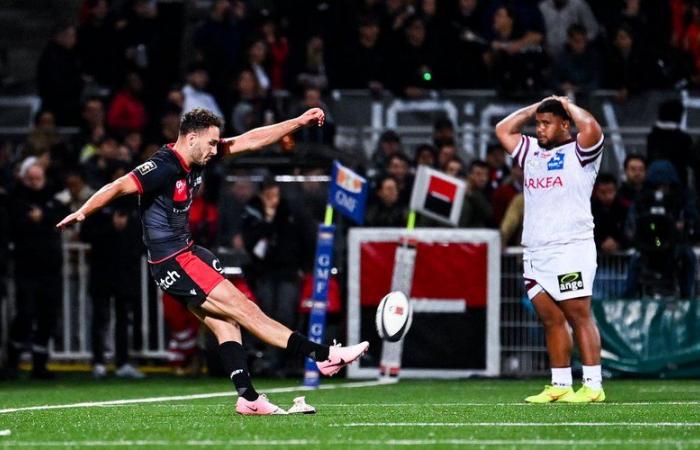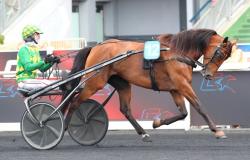The subtraction of thirty seconds made to the scorers before a transformation by the Top 14 and the Pro D2 was obviously not without consequences for the latter, forced to adapt their routines.
This was one of the new features desired by the NRL at the start of the season. A revolution? Not exactly. Rather an evolution in line with those decided in recent years, with the stated desire to increase playing time while reducing that granted to scorers. Thus, from 90 seconds to attempt a conversion after validation of the attempt by the referee, the time allotted to the scorers was reduced to 60 seconds, as for a penalty. Enough to put an end to the “celebrations” in the goal areas deemed increasingly ambiguous, and above all to avoid these horrifying situations in which (generally after video refereeing) the scorers “ate the clock” for interminable seconds, the eye riveted on the “shot clock”, in order to scrounge up as much time as possible while playing on the nerves of opponents and spectators under cover of the law…
Anecdotal? Certainly not. Because now, with only sixty seconds to pick up their tee, perform their routine and hit, scorers don’t really have time to hang around. Enough to disturb some, like the South African international Curwin Bosch, who has not yet found the right rhythm since his arrival in Brive. “I haven’t had my usual success against the posts since my arrival in France and if this cannot be linked to a single factor, this shorter timing for attempting conversions is undoubtedly one of the reasons, estimated the former Sharks player. As a scorer, we all have a certain way of entering our bubble, and the fact of only leaving one minute to kick after the validation of the attempt only leaves around thirty seconds at best to prepare your shot of foot. I am working on this in order to shorten my routine and become more efficient, which is not so obvious when you have already spent ten years in professional rugby. You don’t change your way of doing things overnight.”
The rate of “best” in free fall
A point of view that the figures do not fail to support. Thus, in the Top 14, only one team saw its conversion success percentage increase compared to last season: Lou (from 78.6 to 83.3%). And if UBB, Clermont and Castres saw their ratio maintained (within 1 and 2%), the ten other teams did indeed see their success rate drop, spectacularly even for the three best from last year . Thus, La Rochelle went from an incredible 84.4% to 53.8, Toulon from 84.3 to 66.7 and Bayonne from 81.3 to 71.4. All the other teams (except Toulouse) having also lost between 3 and 12% success…
This is why, since the start of the season, the teams have competed every weekend in ingenuity in order to allow their scorers to gain a few precious seconds. For example, if remote-controlled cars (generally sold to a sponsor) have been kept to take the tee onto the field when attempting a penalty, most clubs have returned this season to more traditional operations by missioning a healer or a player outside the group in the role of water carrier, to gallop his tool to his scorer. Hoping to create sufficient marginal gains to allow them to accomplish a routine that they, like Bosch, had to lighten. What makes us wonder about the fact that in the long term, “natural” strikers (like a footballer’s strike, from the inside of the foot) could have an advantage over “hardworking” strikers (whose strike is more often performed with the kick, at the cost of less spontaneous biomechanics), in the name of often shorter preparation time? The statistics should provide an answer at the end of the season.
Just as, by then, we should know more about what could happen in the case where a scorer had to convert a try that he himself had scored, after an intense effort likely to have made him go up very high cardio… Last week during the reception of Racing 92, Matthieu Jalibert was very close to leaving his tee to Maxime Lucu, after having scored a try in pursuit of a small overhand. The magnitude of the score at this early moment of the match (31st) had, however, that day, encouraged Lucu to refuse to tap, to leave his prerogatives to his number 10. Would he have made the same choice at the last minute? a close match? This is the type of situation that we could be able to witness between now and the end of the season and, who knows, maybe even today.






